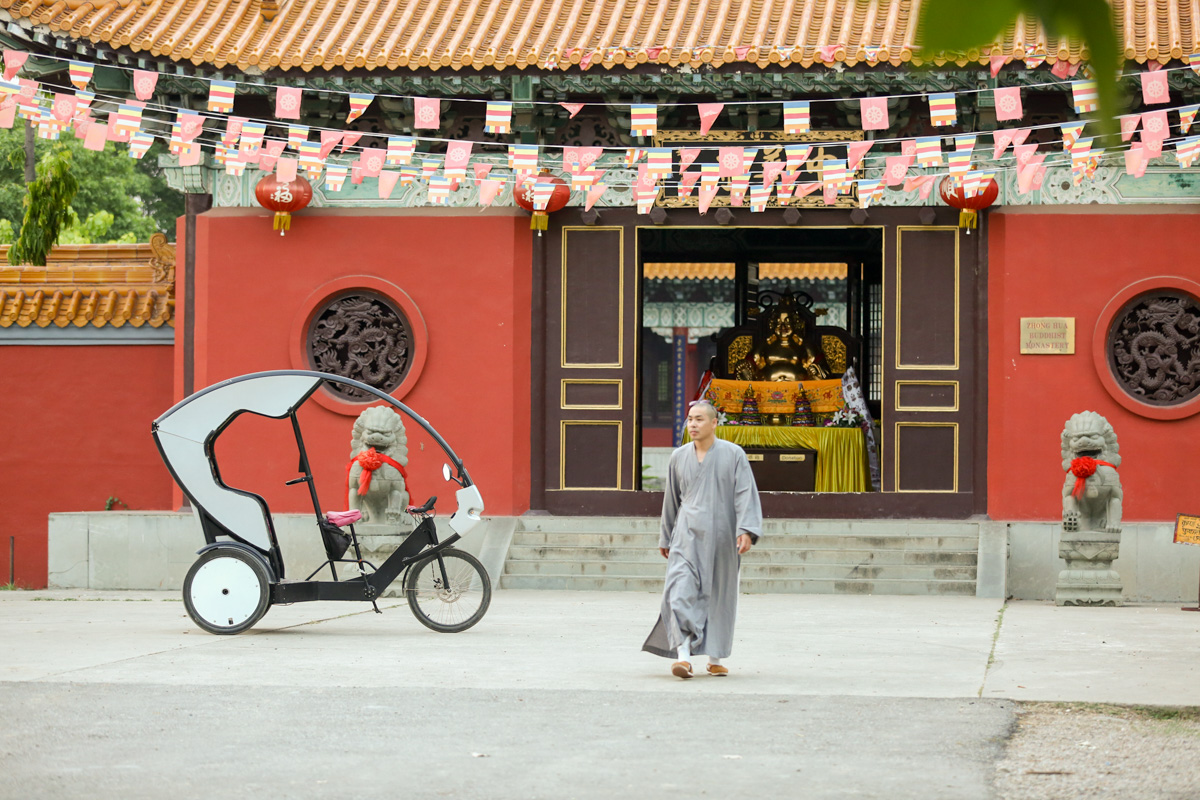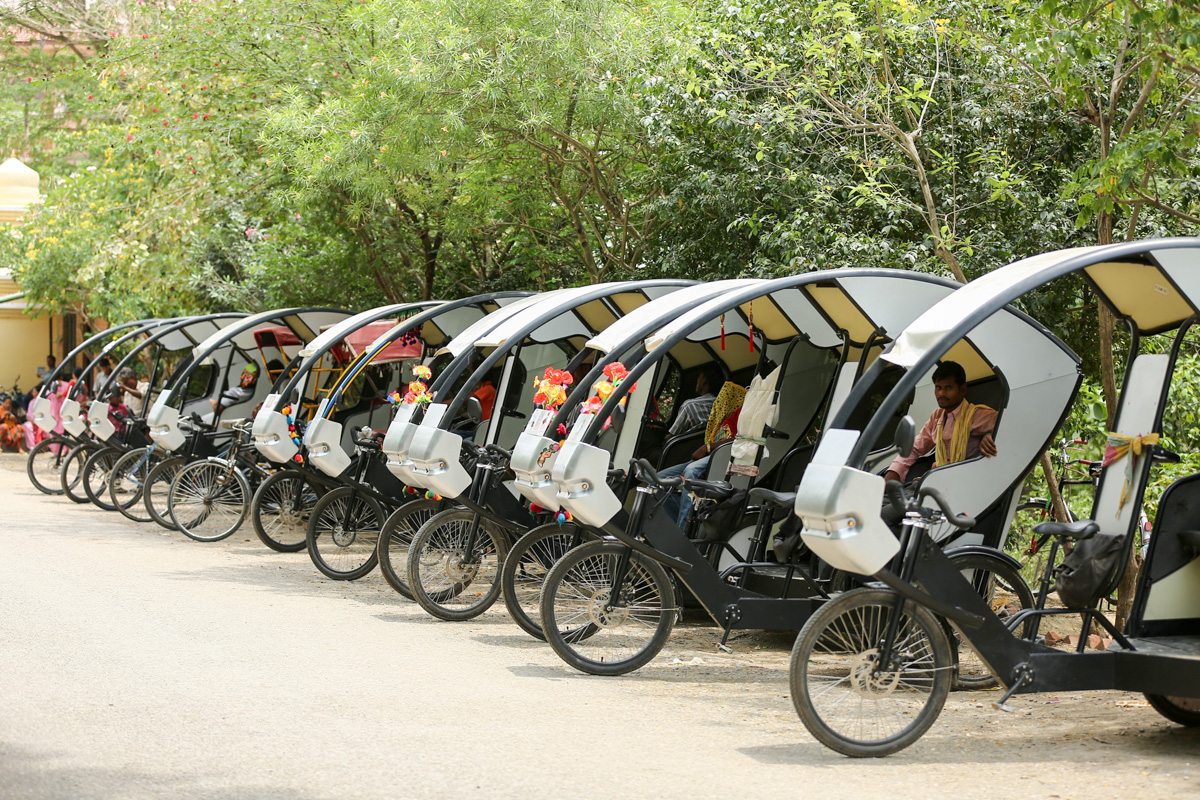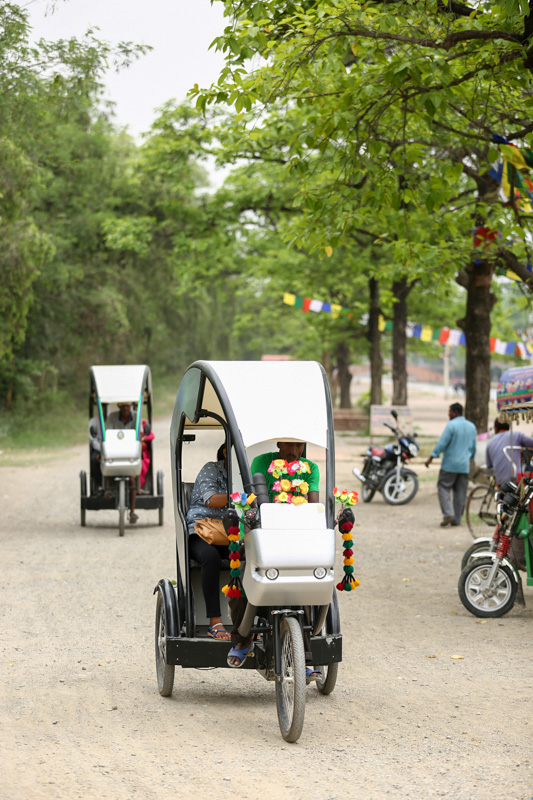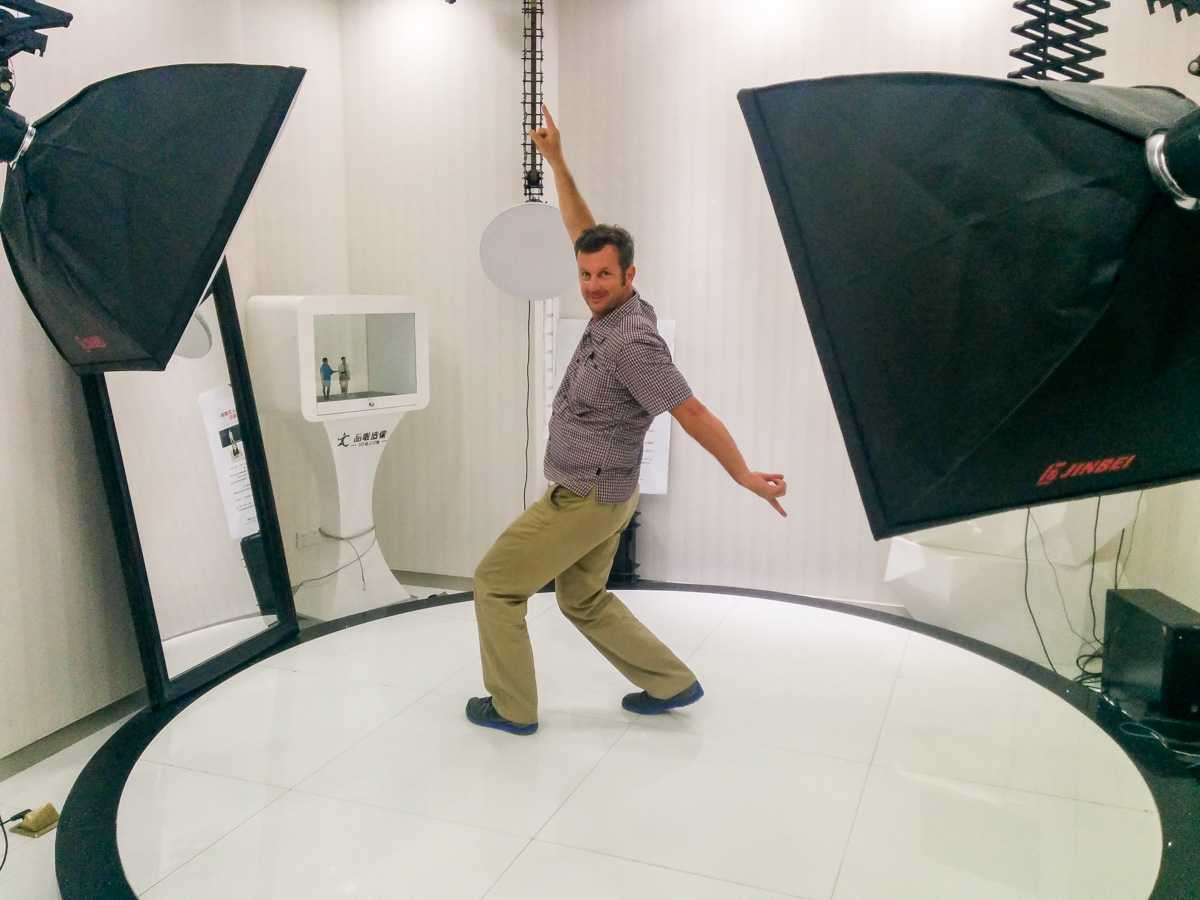Why is it unique and innovative?
The unique composition of our global team (MIT Media Lab, Catapult Design, Asian Development Bank) who brings together the funds, the institutional backing, the local respect & global know how, the engineering and design experience and the enthusiasm to pull this idea of ground and sustain it through three years of iteration and discussion and local manufacturing woes – until we actually delivered it this summer to the rickshaw industry in Nepal and beyond.
Compared to many other projects the people collaborating in this project transcended their institutional roles and borders, pushed beyond bureaucratic limitations and re-conceptualized not only the "pedicab as a product", but also the underlying business models by being able to target complementary customer groups (daily, local users and tourists) and the funding, ownership and operation models enhancing the livelihoods of the local drivers.
Which is why we would love to see this brought forward as a Philippines-Austria-USA-Lao-Singapore-Hongkong-Nepal project, honoring Bradley Schroeder (in memoriam) who made sure we always found a way to stay on track and get it done - including this last minute application that we brought together with contributions of the team based in all the countries mentioned above. (We were not able to reflect this global collaboration in the application form, as we had to select one institution and country only).
Bradley passed away at the beginning of October in Vientiane, Lao PDR while working on the further implementation of the project.
The major innovation is BuddhaPedalPower successfully tackling the often overlooked rickshaw market that can quietly, reliably and sustainably service the transport needs of large parts of the population in Asia - all the while providing livelihoods for the drivers, keep transport emissions low (in a region that currently doubles is motorized fleet every 5-7 years) and even influence how we globally perceive human powered transportation services.
The core team: Bradley Schroeder, George Chen, Maruf Hossain, Michael Linke Prashanta Khanal, Chris Trees, Florence Trees, Karin Carter, Raj Gvawali, Noel Wilson, Michael Lin, Llyod Wright and Katja Schechtner
Photo credits: Catapult
Further information



